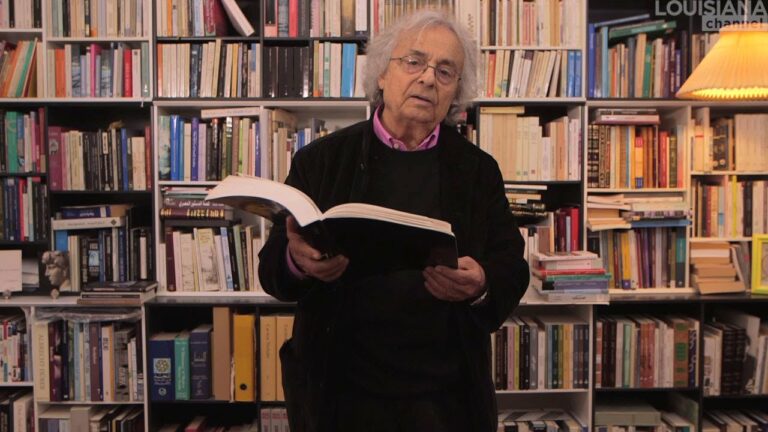
The story of one of the great poets of the Arab world. How an original poem written for the Syrian president sent him to school, how he got the name Adonis, revolutionized Arabic poetry and lives in the exile of being – in continuous beginnings.
Though he grew up in a poor rural farming environment, Adonis’ father familiarized him with old Arab cultural heritage. The essence of this heritage, Adonis feels, is poetry, and he thus grew up reading the classic Arab poets such as al-Mutanabbi, Abu Tammam and al-Ma’arri. When the first elected president of The Syrian Republic, Shukri al-Quwatli, came to visit his village in 1943, following Syria’s independence, the young Adonis took it upon himself to present him with a poem he had written in the president’s honour. This poem made such an impression on the president, that he granted him a wish – that of going to school.
‘Adonis’ was a name that the poet took on in his teens, inspired by his reading of the mythological tale of Adonis and motivated by the constant rejection of his poems by magazines due to his real name (Ali Ahmad Said Esber). The nature of this new name would, however, also come to be significant for how his life turned out, as he says: “In one way or another my own life became a sort of a myth… Sometimes I hesitate to tell it. Because how can someone have a dream which becomes a reality?”
In extension of this, Adonis reflects of the line of coincidences that seem to have shaped his life: “My life has been a series of continuous beginnings. One leap here, another leap there, as if it was all about escaping from the social and political environment I lived in.”
Ali Ahmad Said Esber (born 1930), known as Adonis, is a Syrian poet, essayist and translator. He took on the name ‘Adonis’ at age 17 when he was rejected by a number of magazines under his real name. Adonis is often seen as a rebel, who modernized Arabic poetry, following his own rules. In 1955 he was imprisoned in Syria as a result of his beliefs and political conviction. Following his release from prison in 1956 he moved to Beirut, Lebanon and has since resided primarily in Paris, France. From 1980-1981 he was a professor of Arabic at the Sorbonne in Paris. Adonis became a leading exponent of the Neo-Sufi trend in modern Arabic poetry and has been nominated for the Nobel Prize in Literature many times since 1988 and is widely reputed to be the greatest living poet of the Arab world.
Adonis was interviewed by Hanna Ziadeh at his home in Copenhagen, November 2014.
Camera: Klaus Elmer
Produced by: Christian Lund
Edited by: Kamilla Bruus
Copyright: Louisiana Channel, Museum of Modern Art, 2015
Supported by Nordea-fonden
source